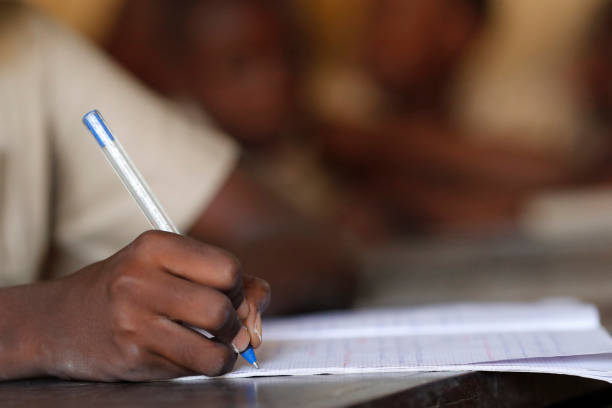Educated to Leave: How Africa’s Colonial Curriculum Bred the Japa Syndrome

The Colonial Blueprint: Training for Empire
So, here’s the ugly truth: Africa’s got this wild migration fever, especially among young, sharp folks with degrees—everybody’s cousin, neighbor, or best friend seems to be “japa-ing” these days. Japa, if you haven’t picked it up from Nigerian Twitter, just means “run for your life.” It’s not just about chasing pounds or dollars, though. The roots run way deeper, like all the way down into the actual DNA of African education systems. Yeah, colonialism’s long shadow is still lurking in the classroom.

See, when the British, French, and whoever else rolled up in Africa with their bibles and flags, they didn’t exactly sit down to design schools for future inventors or visionary leaders. Nope. The blueprint was simple: make a bunch of Africans who could help run the empire. You know, be the interpreters, the clerks, the guys who fill out forms with perfect cursive but never dream big enough to shake things up.
Honestly, the way these schools were set up? It was all about obedience and memorizing European stuff. Shakespeare? Sure. Your own grandfather’s stories or science? Forget it. Local wisdom, tradition, even just knowing your own soil—none of that made the cut. If it didn’t fit the colonial vibe, it was sidelined. And people wonder why everyone feels disconnected or is looking for validation somewhere else.
What’s wild is, this isn’t just some history lesson—it’s still happening. The mindset programmed back then basically taught people, “Hey, success is what the Europeans say it is. Want to matter? Pack your bags and go West.” So Japa syndrome isn’t just folks escaping tough economies or politics. It’s baked into the whole education cake—a system that primes graduates to always look outward and never feel at home unless they’re somewhere else.
Like Ali Mazrui put it (and he didn’t mince words), colonial education made Africans “European in taste, British in allegiance, and alien to their own heritage.” That’s a heavy load. And you can totally see it: the old curriculum wasn’t about building thinkers or creators, just efficient cogs for the empire’s machine. So, fast-forward to today, and the logic still lingers—knowledge only counts if it’s got that European stamp. It’s no wonder people are still itching to leave. The system taught them to.
Independence Without Intellectual Freedom

And after Africa countries decided , “You know what, new era, we’re in charge now!” Not much changed, if you looked at the schools?—many of them basically top students from those mission or colonial schools—just kept running education pretty much the same way. Same lesson plans, same exams, same old-school pecking order. Maybe the school names got an update, but the actual vibe? Still very colonial, just with different flags.
Western education was still the gold standard. Want to be modern, “advanced,” “civilized”? Gotta do it the Western way. So, yeah, countries were “independent,” but the real freedom—the stuff that happens in your head, the way you think about the world—still had its roots in Europe. Kids were memorizing Shakespeare before they even heard of Achebe, learning about Newton long before anyone mentioned Imhotep, and, weirdly, probably knew more about France than their own region. Knowledge, in this setup, was something you imported—like fancy cheese—not something you made at home.
And universities? They were obsessed with getting that stamp of approval from London or Paris or wherever. If you studied “overseas,” oh man, you were a big deal. Stay home? You’re just regular. That’s how you end up with this weird hierarchy where “local” education is always looking up at “foreign” education, like it’s something holy.
This whole setup bred a kind of deep-down urge to get out. You grow up being told the best thing you can do is leave. The colonial classroom, in a way, won. Now, if you’re an ambitious young African, the idea of going abroad isn’t selling out—it’s just what “success” looks like. The groundwork was laid way back, and now we’re seeing the results.
So the “japa” trend may be the thing of the day now, but it has always been building up for decades. Doctors, engineers, professors—packing their bags for the UK, Canada, the US. The system practically designed them for export.
And it’s everywhere. The smartest students? Usually, they’re the ones most desperate to “escape.” Universities brag about their international exchange programs, not about what they’re doing locally. Parents? They’re measuring how successful their kids are by how far away they study. Governments even get in on it, treating international scholarships like trophies—proving, once again, that what really matters is what happens “over there.”
Sociologists have a name for it: “the pedagogy of departure.” Basically, schools aren’t making citizens who want to build up their communities. They’re churning out people who want to make it anywhere but home. Migration becomes this weird badge of honor—and, if you squint, a pretty glaring sign that something’s not working the way it should.
The Cost and the Cure
Let’s be real: countries keep losing their brightest minds and acting like remittances are some big win. It’s kind of wild, honestly—celebrating money sent home while ignoring the fact that whole health systems and industries are running on fumes. Take Nigeria and Ghana. They crank out doctors every year, but the hospitals? Still empty. Those docs are gone, hustling for better gigs overseas. Same thing with engineers and tech folks. Train them at home and—poof—they’re off, getting snapped up by foreign companies. It’s like Africa keeps footing the bill for the world’s workforce, but instead of shipping out gold or cocoa, now it’s talent that’s getting extracted.

But hey, it’s not just about cash or numbers on a spreadsheet. There’s this weird mind warp that happens too. For generations, “making it” has meant getting the heck out—leaving your hometown, ditching your mother tongue, and trading your own ways of knowing for whatever’s shiny and Western. What you get is a bunch of people who feel awkward everywhere, like they’re too foreign at home and too…well, African, anywhere else. These are folks who could totally shake things up, but instead, they’re trained to bolt.
Now, if this whole “Japa syndrome” is a symptom of bad schooling, then maybe—just maybe—the fix is to blow up the whole idea of what school should be. Imagine schools and Uni”s that actually care about local realities, that don’t treat African knowledge like it’s just folklore. Not saying you should slam the door on outside ideas or tech—just, you know, put them in context. Teach kids their own history, their own languages, stuff that’s actually useful for the lives they’ll live. Not as some museum exhibit, but as the bedrock for real progress.
And look, some places are already stirring the pot. South Africa’s got students and profs asking why the syllabus looks like it was photocopied straight outta London. Kenya’s flipping the script
with a curriculum tied to actual jobs people need. Rwanda’s getting into tech and entrepreneurship, but with local flavor.
Bottom line: if African schools keep selling the dream that success means leaving, then yeah, kids will keep running. But what if the dream was about building something real, right where you are? Imagine students feeling legit pride in their roots, seeing dignity in making things work at home. That’s when you get education that’s more than just a ticket out—it’s a reason to stay, to belong.
The fact that the “Japa syndrome” is still a thing?. So until the whole idea of education gets a serious reset, Africa’s just going to keep training up its best—and watching them walk away.
Recommended Articles
The Art of Remembering: Museums and the Politics of Memory

Across Africa, museums are being reimagined as spaces of truth, justice, and identity. From debates over looted artifact...
If Everyone Wants to Leave Nigeria, Who Will Stay to Fix It?

With Nigeria's brightest minds leaving daily, the country risks loosing its future. who will remain to rebuild
You may also like...
Football Frenzy: PSG's €150M Mega-Bid for Super Eagles Star Shakes Transfer Market

Super Eagles star Victor Osimhen, currently excelling at Galatasaray, is generating significant transfer buzz with Frenc...
NBA Inferno: Heat's Historic 53-Point First Quarter Annihilates Hornets

The Miami Heat secured a 126-108 victory over the Charlotte Hornets in an NBA Cup game, marked by a franchise-record 53-...
Breaking! Netflix's My Hero Academia Movie Surges Ahead After 7-Year Wait

Netflix's live-action My Hero Academia film is set to begin filming in Fall 2026, signaling a major step forward for the...
Epic Quest Progress! Live-Action Zelda Movie Takes Major Leap Forward

The live-action adaptation of "The Legend of Zelda" has officially begun production in New Zealand, with Wes Ball direct...
Mod Sun Opens Up on Avril Lavigne Split: 'If I Run Into You, It’s All Love'

Mod Sun opens up about his past engagement to Avril Lavigne, reflecting on their breakup and the personal growth he expe...
Milli Vanilli’s Fab Morvan Lands New Grammy Nod 35 Years Post-Scandal

Fab Morvan of Milli Vanilli has received a second Grammy nomination for his audiobook, 35 years after the duo's historic...
Hidden Benefit Revealed: Blue Badge Holders Can Get Free Travel!

Many Blue Badge holders in Scotland may be unaware they qualify for free bus travel using the National Entitlement Card....
Black Friday Frenzy: Apple Fans Grab MacBook Air for Jaw-Dropping £17!

Apple fans can snag a MacBook Air M2 at its lowest-ever price this Black Friday, with Sky Mobile offering it for just £1...
.png&w=1920&q=75)
